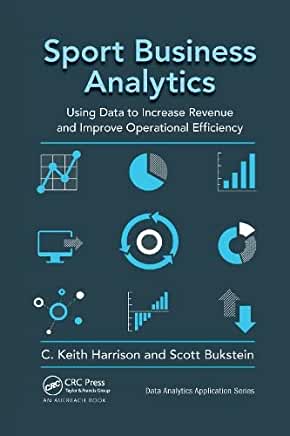20696: Administering System Center Configuration Manager and Intune Training in Novato
|
We offer private customized training for groups of 3 or more attendees.
|
||
Course Description |
||
| Get expert instruction and hands-on practice configuring and managing
clients and devices by using Microsoft System Center v1511 Configuration
Manager, Microsoft Intune, and their associated site systems. In this
five-day course, you will learn day-to-day management tasks, including
how to manage software, client health, hardware and software inventory,
applications, and integration with Intune. You also will learn how to
optimize System Center Endpoint Protection, manage compliance, and
create management queries and reports. Additionally, this course, in
conjunction with Microsoft Official Course 20695C, also helps
certification candidates prepare for Exam 70-696: Managing Enterprise
Devices and Apps.
Course Length: 5 Days
Course Tuition: $2190 (US) |
||
Prerequisites |
|
| Before attending this course, students must have working knowledge at the system-administrator level of the following: Networking fundamentals, including common networking protocols, topologies, hardware, media, routing, switching, and addressing. Active Directory Domain Services (AD DS) principles and fundamentals of AD DS management. Installation, configuration, and troubleshooting for Windows-based personal computers. Basic concepts of public key infrastructure (PKI) security. Basic understanding of scripting and Windows PowerShell syntax. Basic understanding of Windows Server roles and services. Basic understanding of the configuration options for iOS, Android, and Windows Mobile device platforms. | |
Course Outline |
|
Module 1: Managing computers and mobile devices in the enterprise This module describes the features that Configuration Manager and Intune include, and it details how you can use these solutions to manage PCs and mobile devices in an enterprise environment.
Lessons
Lab: Exploring the Configuration Manager tools
Lab: Creating queries, and configuring Reporting Services
After completing this module, students will be able to:
Module 2: Preparing the management infrastructure to support PCs and mobile devices This module explains how to prepare the management infrastructure, including configuring boundaries, boundary groups, and resource discovery. Additionally it describes how Configuration Manager interacts with the Microsoft Exchange Server environment to discover and manage mobile devices.
Lessons
Lab: Configuring boundaries and resource discovery
Lab: Configuring user and device collections
After completing this module, students will be able to:
Module 3: Deploying and managing clients This module explains the supported operating systems and devices, the software requirements, and the different methods for installing the Configuration Manager client. This module also describes some of the default and custom client settings that you can configure. After installing the client software, you can configure the client settings to perform routine management tasks.
Lessons
Lab: Deploying the Microsoft System Center Configuration Manager client software
Lab: Configuring and monitoring client status
Lab: Managing Client Settings
After completing this module, students will be able to:
Module 4: Managing inventory for PCs and applications This module describes the inventory collection process. Additionally, it details how to configure, manage, and monitor hardware and software inventory, and use the Asset Intelligence and software metering features.
Lessons
Lab: Configuring and managing inventory collection
Lab: Configuring software metering
Lab: Configuring and managing Asset Intelligence
After completing this module, students will be able to:
Module 5: Distributing and managing content used for deployments This module explains how to identify and configure the most appropriate method to distribute and manage content that is used for deployments.
Lessons
Lab: Distributing and managing content for deployments
After completing this module, students will be able to:
Module 6: Deploying and managing applications This module explains describes the methods for creating, deploying, and managing applications with Configuration Manager. Also it explains how to use the Software Center and the Application Catalog to install available applications and manage deployments on unconventional applications. In addition, it describes how to install Windows 10 apps and virtualized applications.
Lessons
Lab: Creating and deploying applications
Lab: Managing application supersedence and removal
Lab: Deploying virtual applications by using Configuration Manager (Optional)
Lab: Using Configuration Manager to deploy Windows Store apps
After completing this module, students will be able to:
Module 7: Maintaining software updates for managed PCs This module explains how to use the software updates feature in Configuration Manager to implement an end-to-end management process for the complex task of identifying, deploying, and monitoring software updates to your Configuration Manager clients.
Lessons
Lab: Configuring the site for software updates
Lab: Deploying and managing software updates
After completing this module, students will be able to:
Module 8: Implementing Endpoint Protection for managed PCs This module explains how to use Configuration Manager to implement Endpoint Protection.
Lessons
Lab: Implementing Microsoft System Center Endpoint Protection
After completing this module, students will be able to:
Module 9: Managing compliance and secure data access This module explains how to manage configuration items, baselines, and profiles to assess and configure compliance settings and data access for users and devices.
Lessons
Lab: Managing compliance settings
After completing this module, students will be able to:
Module 10: Managing operating-system deployments This module explains how to use Configuration Manager to create a strategy for operating-system deployments.
Lessons
Lab: Preparing a site for operating-system deployment
Lab: Deploying operating-system images for bare-metal installations
After completing this module, students will be able to:
Module 11: Mobile device management using Configuration Manager and Microsoft Intune This module explains how to manage mobile devices by using Configuration Manager and Intune.
Lessons
Lab: Managing mobile devices with on-premises infrastructure
After completing this module, students will be able to:
Module 12: Managing and maintaining a Configuration Manager site This module explains how to use manage and maintain a Configuration Manager site. It describes role-based administration, Remote Tools, and the site maintenance tasks that you can manage by using Configuration Manager. Additionally it explains how to back up and recover a Configuration Manager site system.
Lessons
Lab: Configuring role-based administration
Lab: Configuring Remote Tools
Lab: Maintaining a Configuration Manager site
After completing this module, students will be able to:
|
Course Directory [training on all levels]
- .NET Classes
- Agile/Scrum Classes
- Ajax Classes
- Android and iPhone Programming Classes
- Blaze Advisor Classes
- C Programming Classes
- C# Programming Classes
- C++ Programming Classes
- Cisco Classes
- Cloud Classes
- CompTIA Classes
- Crystal Reports Classes
- Design Patterns Classes
- DevOps Classes
- Foundations of Web Design & Web Authoring Classes
- Git, Jira, Wicket, Gradle, Tableau Classes
- IBM Classes
- Java Programming Classes
- JBoss Administration Classes
- JUnit, TDD, CPTC, Web Penetration Classes
- Linux Unix Classes
- Machine Learning Classes
- Microsoft Classes
- Microsoft Development Classes
- Microsoft SQL Server Classes
- Microsoft Team Foundation Server Classes
- Microsoft Windows Server Classes
- Oracle, MySQL, Cassandra, Hadoop Database Classes
- Perl Programming Classes
- Python Programming Classes
- Ruby Programming Classes
- Security Classes
- SharePoint Classes
- SOA Classes
- Tcl, Awk, Bash, Shell Classes
- UML Classes
- VMWare Classes
- Web Development Classes
- Web Services Classes
- Weblogic Administration Classes
- XML Classes
- Ruby on Rails
5 December, 2024 - 6 December, 2024 - Linux Fundaments GL120
9 December, 2024 - 13 December, 2024 - Introduction to C++ for Absolute Beginners
16 December, 2024 - 17 December, 2024 - Fast Track to Java 17 and OO Development
9 December, 2024 - 13 December, 2024 - Working with Elastic Search
20 November, 2024 - 21 November, 2024 - See our complete public course listing






